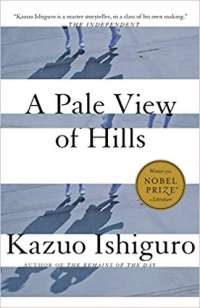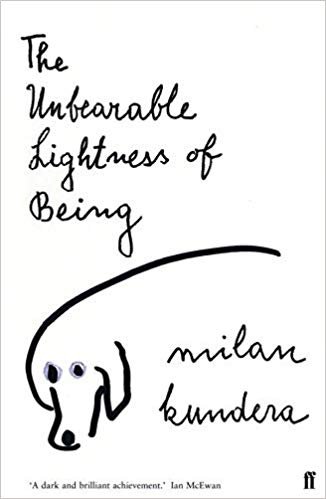I wrote in Great Opening Lines – and Why! (Part 3 – Some Great Opening Lines) that I’d share more great opening lines as I found them.
 “Niki, the name we finally gave my younger daughter, is not an abbreviation; it was a compromise I reached with her father.” – Kazuo Ishiguro’s A Pale View of Hills
“Niki, the name we finally gave my younger daughter, is not an abbreviation; it was a compromise I reached with her father.” – Kazuo Ishiguro’s A Pale View of Hills
I’m amazed at how much is given the reader in that single sentence. I want to know that Ishiguro agonized over it, that it’d been through seventeen-hundred drafts, endless workshoppings, backs-and-forths with dozens of editors.
Either that or it’s one of those amazing flukes the author is unaware of until someone points it out to them.
We’re given the two focal point characters in that opening line; Niki and her mother. We learn that the mother is not happy with the name, but was willing to compromise on something that would be in her life forever – if that’s not character description nothing is.
We learn that “we” made the decision about “my” daughter. Possession but not ownership. Another character descriptive element.
We learn the mother prefers names that are not abbreviations. IE, names that have more meaning, more history. However, the fact that the mother thinks in terms of abbreviations lets us know that the mother sees things confined, constrained, walled-in.
In one sentence, we have the entirety of the book.
Note to readers: I explain in my Goodreads review that this book is a major fail. It’s got a killer opening line and the majority of the book is a worthy read. Ten pages from the end it died for me. Give it a read and let me know what you think.
 “The idea of eternal return is a mysterious one, and Nietzsche has often perplexed other philosophers with it: to think that everything recurs as we once experienced it, and that the recurrence itself recurs ad infinitum!” – Milan Kundera’s The Unbearable Lightness of Being
“The idea of eternal return is a mysterious one, and Nietzsche has often perplexed other philosophers with it: to think that everything recurs as we once experienced it, and that the recurrence itself recurs ad infinitum!” – Milan Kundera’s The Unbearable Lightness of Being
I (incorrectly) reference this book’s opening line in my Writers’ Corner Interview. The opening line offers this philosophical tidbit, the next line, “What does this mad myth signify?” asks the question and the rest of the book explores so many implications it’s staggering. The book’s seven sections dissect the opening posit from many angles (more than seven) and the first line’s theme recursed on every page.
I also appreciate that an opening line inviting readers to think may be a major downer to some. Never-the-less, this opening line prepares you for the exploration that begins in the second paragraph and doesn’t end until the butterfly circles the room and the piano and violin are faintly heard in the last paragraph. Definitely a keeper book.
Do you have any great opening lines you’d like to share?
I’d love to know them. There’s a catch, though. You have to explain in context why a line is great. Saying a line is great because it comes from some great literature doesn’t cut it. Quoting from archaic and/or little known works doesn’t cut it.
Feel free to quote from archaic and/or little known works, just make sure you give reasons why something is great. I stated the Great Opening Lines criteria back in Great Opening Lines – and Why! (Part 2 -What Makes a Great Opening Line?).
So by all means, make the claim. Just make sure you provide the proof according to the guidelines given. If not, your comment won’t get published.
